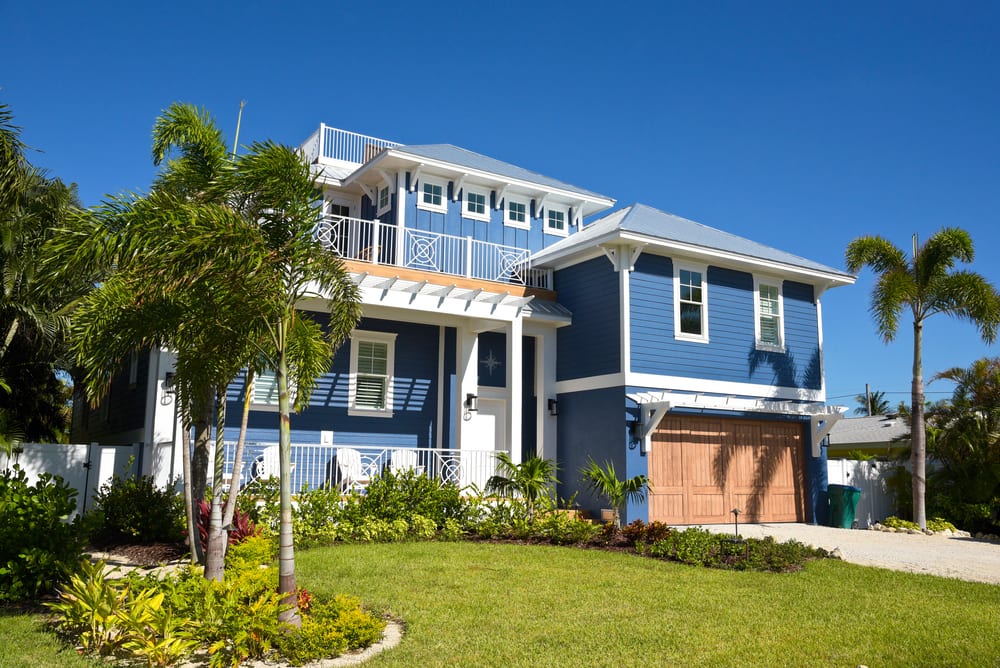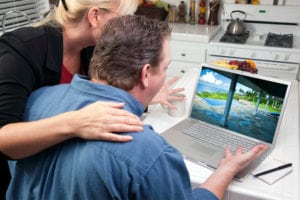
How to Handle Guest Damages in Vacation Rental Properties
So now that you’re a property manager, you should have accepted that many responsibilities fall onto your shoulders — many of which you have absolutely no control over! Not only are you handling the property owners’ needs, but the guests and your staff as well, not to mention the physical aspects of caring for the properties.
Are you and your team equipped to tackle the duty of checking clients in and out? Do you have a protocol in place for when clients damage the property? You do a good job each day to control all of the things you can control between turns, but how do you handle guest damages that you can’t control?
Rent to the Right Crowd
 Let’s face it, when it comes down to it, one of the most effective ways to ensure that the property won’t get damaged is by knowing to whom you’re renting. Statistically speaking, adults 25 and over aren’t as likely to cause damage, while some under 25 (like college students for example) tend to be careless in hotels and properties that aren’t their responsibility. Unfortunately, many people under that age just haven’t yet been responsible for something that valuable yet and don’t have the same respect as an older group. It may not be intentional, but damages are damages and you should avoid them when you can. (This doesn’t mean to never rent to under 25, but you should understand the risks and follow our processes at Vacation Rental University to do it well)
Let’s face it, when it comes down to it, one of the most effective ways to ensure that the property won’t get damaged is by knowing to whom you’re renting. Statistically speaking, adults 25 and over aren’t as likely to cause damage, while some under 25 (like college students for example) tend to be careless in hotels and properties that aren’t their responsibility. Unfortunately, many people under that age just haven’t yet been responsible for something that valuable yet and don’t have the same respect as an older group. It may not be intentional, but damages are damages and you should avoid them when you can. (This doesn’t mean to never rent to under 25, but you should understand the risks and follow our processes at Vacation Rental University to do it well)
Past under 25 guests the threshold for people to purposely damage properties is very low, less than 1%. Those renters that do end up damaging property, for the most part, might likely be scammers or those who throw parties and aren’t in control of a large crowd.
What Can I Do to Prevent Problems with Guest Damages?
 Two quick options are to ask for a security deposit or leverage an accidental damage waiver. Deposits are harder to manage and deter guests, but in nicer properties, the deposit is a great deterrent to people who aren’t sure their group will care for the property well. You can also provide a damage waiver to clients that are much easier to manage AND can be a profit center. Rental Guardian is a favorite travel insurance company. You can also self-insure by collecting the damage waiver for each reservation and using those funds to pay for damages as they happen. The margins are great on this revenue when you manage it in-house at a good scale, but there is less risk when you leverage an insurance company. These methods are essential for do-it-yourself managers because you may not have enough other properties and income to cover damages otherwise! Another way to protect this from happening is to make sure that you as a property manager are on top of things. You MUST control everything you can while you have the opportunity. Make sure that the cleaners arrive right after the guests check out. Inspect the property for maintenance issues and cleanliness is crucial. You can catch little problems before they come big and fix things that are wearing out before the guests breaks them. When you add a new unit, make sure that the owner tells you about their experience with the property and past issues so you know what to check.
Two quick options are to ask for a security deposit or leverage an accidental damage waiver. Deposits are harder to manage and deter guests, but in nicer properties, the deposit is a great deterrent to people who aren’t sure their group will care for the property well. You can also provide a damage waiver to clients that are much easier to manage AND can be a profit center. Rental Guardian is a favorite travel insurance company. You can also self-insure by collecting the damage waiver for each reservation and using those funds to pay for damages as they happen. The margins are great on this revenue when you manage it in-house at a good scale, but there is less risk when you leverage an insurance company. These methods are essential for do-it-yourself managers because you may not have enough other properties and income to cover damages otherwise! Another way to protect this from happening is to make sure that you as a property manager are on top of things. You MUST control everything you can while you have the opportunity. Make sure that the cleaners arrive right after the guests check out. Inspect the property for maintenance issues and cleanliness is crucial. You can catch little problems before they come big and fix things that are wearing out before the guests breaks them. When you add a new unit, make sure that the owner tells you about their experience with the property and past issues so you know what to check.
The ADW is a great tool, but when it comes to intentional damages, that’s a different story. Don’t get lazy and apply intentional damages to the ADW funds or you’ll lose a lot of money. Add in your rental agreement to include that you can and will pursue the renter if they damage intentionally and go collect when you know something wasn’t an accident.
How do you decide how much you should charge for the ADW or security deposits? It depends on the size, value, and nightly rate of the property. Larger more complex properties will need more protection because so many more things can go wrong.
We cover some rules of thumb on how to price each type of property in our lessons at Vacation Rental University. Come join us!
